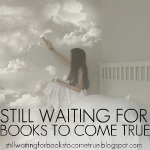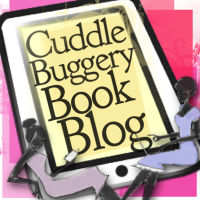So, first off, I'd like to apologize for my relative silence--both on the blog and in comments--the past few days. I was at a convention with no internet over the weekend, and then these past few days I have just been completely swamped with work. Hopefully, things will lighten up after this week.
However, my ridiculously large pile of schoolwork is not what this post is about.
The other day in Creative Writing, while discussing The Hunger Games (which he had only just finished for the first time), my teacher made a claim. That you could give him any book he'd read, and he could tell you the overall idea/message/theme of the novel. People proceeded to fire titles at him, and he proceeded to tell us--with confidence, and barely a moment of hesitation--what he thought were the general ideas of these books, The Hunger Games included.
The thing is . . . I didn't agree with any of them.
Honestly, I don't even remember precisely what he said. I only know I vehemently disagreed, on every mentioned book I had read. And I caught myself thinking, No. That's wrong.
Is it?
Is any interpretation of a book wrong? I've been asked this question before, seen it posed many times. Isn't it up to readers to determine what a book really means?
Personally, I think that's true . . . to an extent. I think there is certain symbolism, certain comparisons, certain underlying messages that can be taken in various ways, and that different readers will interpret things differently based upon their own comprehension and experiences. But on the other hand, I do think you can say something that is completely and utterly wrong. For example, if someone told me the main idea of The Hunger Games was that humans have a crippling terror of unicorns overrunning the world, I would have no qualms telling them that they clearly were not reading the book all that closely.
But as I was listening to my teacher and shaking my head, I saw others nodding every now and then. A flicker of agreement. These interpretations that I so strongly disagreed with were accepted by several of my peers. So, were they that far-fetched after all? Are there "wrong" interpretations of any book?
What's your view?
Wednesday, May 2, 2012
Subscribe to:
Post Comments (Atom)










9 comments:
One of my professors talked about this a lot in my Practical Criticism class. And at the end of the day, her view on it was, if you can argue your claim well and provide enough textual support for it, it should hold up as an interpretation. And I kind of think of it that way, too.
There are people who stretch or take things out of the context of the story to support their view, and I think that's where I draw the line. You have to be able to make your interpretation hold up.
Interesting post Lexie! I think that readers can take away many different interpretations from a book. I believe there is no "right" way to interpret a book and everyone will take away something different from it. My sister and I have this discussion all the time. When we both read the same book and then go to discuss it, I find she will bring up a different topic first then from what I will be thinking about. Her interpretation is maybe something I found in the story but didn't pay much attention to or something I didn't find at all. I kind of like when that happens though because it challenges me to reread a book again and try to find another meaning. That is also why I reread so many of my books over and over again because often times I can find some completely different way to interpret a story.
However, the line is definitely drawn when the interpretations are completely out there.
I don't think there is a wrong interpretation of the book. Humans are shaped by their life experiences and completely different people, and it's only natural that we bring in a bias when we start reading a book. Reading is such a subjective thing that it's impossible, in my opinion anyway, for two people to share the same view completely, because we think differently and words are open for our personal interpretation.
^ Rambles. I'm not sure how much sense they make :P Anyway, very interesting post!
I went to a workshop with a writer who was accused of promoting pedophilia behaviour by a lecturer because the kids explored a creepy house where an old guy is. I'd say that's an example of how an extreme interpretation can be wrong.
Other times I've seen reviews where I know the blogger's views don't match up with mine. I can see how the reviewer got to that conclusion, but I disagree with then that was the author's intention. I've also had it in my HC review from Inkpop where the editor has suggested there was some romantic tension between two characters that I definitely didn't mean to be there (in fact I was trying to avoid it).
I think that when people try to look at things and dissect it from a theoretically point of view, like with the lecturer or people who look for conspiracies in novel (like that blog that was in the Sommies last month), it is more likely that the interpretation could be wrong because they're trying too hard to make a statement. But when two people who read a book for pleasure, opinions are usually not wrong, but just a point of view.
It's strange, how our life experiences and viewpoints can change the way we look at a book. I remember being in high school and listening to my teacher prattle on about the messages and meanings behind some books, and thinking 'Really? All I got out of it was ____,' and I felt bad, even maybe like I was a bad student, because I didn't see these things "the right way."
Thinking about books is like looking at clouds. Everyone's going to see something different.
Great post! I usually find that if I start thinking one way about a book before I start reading it, I tend to keep that viewpoint throughout the book. Also, I think it's good that everyone has their own interpretations of things. If we all thought the same way and felt the same about everything, then there would never be a variety of different (and interesting!) opinions.
I also agree with Traci; I love finding out different interpretations of books when discussing it with others, and I like to go back and read the book again with that interpretation in mind.
I'm also slightly curious about what your teacher's interpretation of The Hunger Games was.
Michelle @ The Bookish Poodle
This is my favorite thing about reading and interacting with other readers. People don't always get the same thing from a book, but I feel like that's okay. I'm sure most writers have a specific interpretation of what their book is supposed to mean, but because people are varied in so many different ways, not everyone is going to focus on the same things. Just like highlighting textbooks for school, a fact I think is worth highlighting may be skipped over by the person sitting next to me. I feel like it's the same thing with movies. My sister in-law and I were talking the other day about a movie and our interpretations of the ending were completely different.
I feel like different points of view makes things interesting and it gives us all something to talk about :0)
Great post, Lexie! Definitely something worth talking about <3
There are always different ways to interpret books and you can see that in the book blogging sphere where there are hundreds of differing opinions in reviews. For me, it's definitely interesting to find out about different opinions as more often than not, they weren't things I would have even considered but I find myself agreeing with them. Are interpretations ever wrong? I don't think so! It's someone's opinion and there isn't any logic behind thinking one person's opinion is more 'true' than another persons. Though I guess a line has to be drawn eventually. Like you said, if someone has something completely off that it appears they were reading a different book, then that's when an interpretation can be questioned.
Well, I was basically going to say what Michelle already did, so now I don't need to. :P
Post a Comment